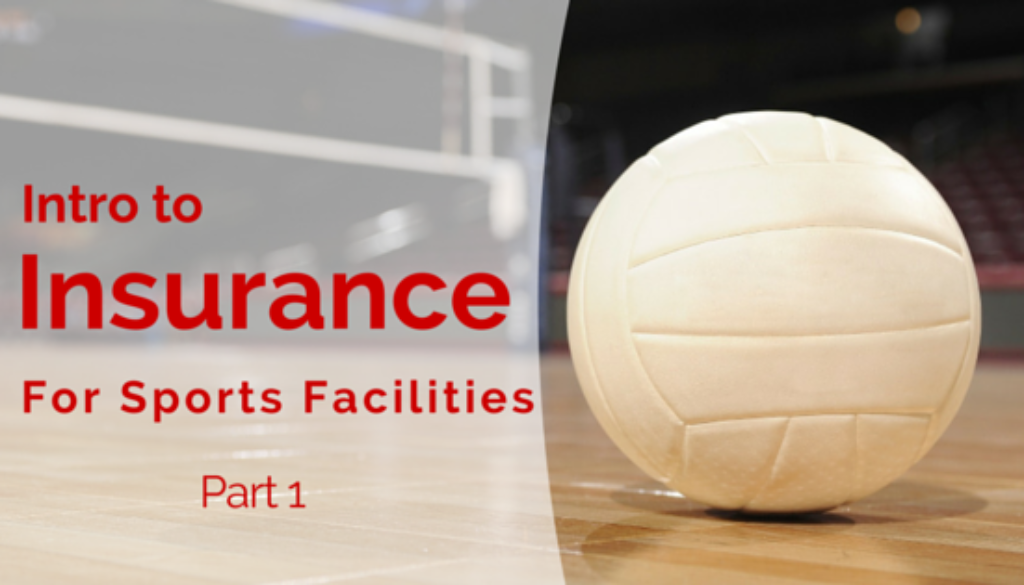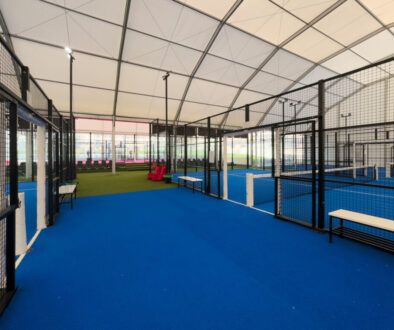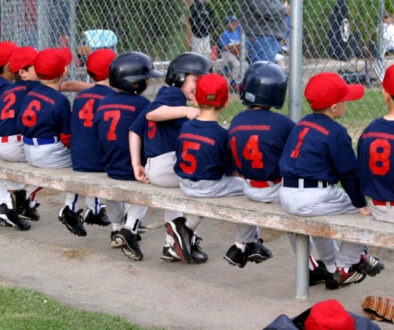Insurance for Sports Facilities – Your Guide
Part 1: Choose Your Coverage
Let me guess: You’re not exactly thrilled to be looking for sports facility insurance for your business.
No matter which type of coverage you’re looking for, wading through legal jargon and thinking about all the worst-case scenarios facing your business can be overwhelming. It’s no wonder many new sports business owners just request the minimum coverage or least expensive option.
However, you shouldn’t rush through the process of choosing insurance for your sports facility or sports complex. You already know why: the results could be disastrous. Not just for your business, but for your athletes and staff.
Let’s discuss which types of insurance you might need. Then, in Part 2 we’ll go through how to actually get covered.
Liability Insurance
Even if you only want the bare minimum coverage for your sports facility or complex, you’ll need liability insurance.
General liability insurance typically covers your legal costs and damages from any lawsuit dealing with injury and property damage caused directly or indirectly by your business or your staff.
Even if you pay close attention to safety and have all your participants sign waivers, you can’t prevent all accidents. Even if you’re eventually cleared of any charges against you, you can still get hit with huge legal bills that can be impossible for a small business to pay.
General liability policies vary a lot. So, you’ll have to read the fine print for any policy you consider. In addition to physical injury and property damage, your liability policy may also cover lawsuits related to:
Personal Injury
Physical injury refers to bodily getting hurt, but “personal injury” covers lawsuits that deal with things like libel, slander, and unfair business practices.
Advertising and Intellectual Property
Some general liability policies include coverage for lawsuits dealing with the way you represent your business to the public. Make sure that this coverage extends to your online presence, as well as to your traditional advertising.
Non-Owned Auto
If your staff, coaches, parents or volunteers ever drive players in their personal cars as part of any of your business’ or organizations events, your business can be sued in the case of an accident. A non-owned auto policy typically won’t cover auto damage or medical expenses (those should be covered by the driver’s personal insurance), but will cover any legal expenses.
Sexual Abuse and Molestation
This one is so terrible and seemingly unimaginable that we’d all like to avoid thinking about it. However, we should probably all have this coverage.
Most policies don’t cover abuse/molestation unless you buy an additional policy and are willing to require background checks and staff training. If you have a hard time finding this coverage, you may be able to check with larger sports governing bodies to see if you can buy in through them using their negotiating power.
Board Insurance / Directors & Officers (D&O) Insurance
Board insurance covers any legal disputes that result from executive decisions or policies. The coverage can include most employee-related disputes, as well.
Examples of coverage: expenses resulting from lawsuits by employees who think they were fired unfairly, who think your operations were discriminatory, or who believe that they suffered in some way because they worked for you.
Make sure you always know exactly who is covered by your board insurance policy (and keep those names updated as necessary). Also, be very specific about what is covered (generally, you want a policy that covers all employee-related activities).
Punitive Damages
Liability policies should also cover punitive damages related to lawsuits. Almost all lawsuits filed include these types of damages. They are meant to inflict extra punishment over and above a plaintiff’s personal costs.
Accidental Medical / Accidental Injury Insurance
The second most common type of insurance for sports organizations and businesses is accidental medical insurance.
This insurance covers any medical costs that result from injuries taking place at your business or at any of your events. Your liability coverage will NOT cover such medical costs, only the legal costs.
In some cases, accidental medical coverage may help you avoid a lawsuit entirely. Specifically, the injured people won’t have to resort to a lawsuit to pay their medical bills. Lawsuits cost hours and hours of time and stress, plus plenty of money. (Even if with liability insurance, you’ll still have to pay a significant deductible upfront.) So, accidental medical coverage is a good bet.
Don’t assume that all the athletes in your facility will be completely covered by their own health insurance. Even with recent expansions in national coverage, not all kids are covered. Even if they do have coverage, parents might still find themselves with huge bills due to high deductibles or coverage limits. Making sure you can contribute to those costs is the right thing to do.
Another bonus of adding accidental medical coverage to your liability policy, according to David Abraham of Gagliardi Insurance: In many cases, the combination of liability and accidental medical triggers a policy called “participant legal liability.” PLL covers the costs of any disputes that occur between participants at your facility or events, such as a fight between players during a game.
Equipment Insurance and Property Insurance
Many sports facility owners also choose to insure their business’ property from theft and damage. (The “property damage” mentioned above in your liability policy refers to damage to other people’s property, not your own.)
Property and equipment insurance might include coverage for weather-related damage. Examples include damage to your outdoor equipment, such as bleachers and scoreboards, general accidental damage to your indoor equipment, such as your turf and pitching machines, or even damage to your building (such as that caused by a fire, flood, tornado, or vandalism).
Of course, the cost and options for equipment and property insurance will depend on its value and the risks it faces. You can discuss all of those details and options with your agent or broker.
Fidelity Bond Insurance
Fidelity bond insurance protects your business in the case of money or other assets being stolen or used inappropriately by employees or other people related to your business.
Whether you choose to get this type of insurance will likely depend on how much responsibility you give your staff and partners. Do they often collect money directly from players or parents? Are they responsible for taking large deposits to the bank? Do they have full access to take your most valuable assets? If so, you should probably consider adding fidelity bond coverage to your policy.
You may also choose to get additional insurance for general theft from non-employees, as well.
Insurance for Teams and Leagues
If your sports business or organization sponsors teams that travel off-site to play or practice, as most do at some point, you’ll need separate insurance for each team. (If you run a sports organization that hosts teams but doesn’t have a physical space, this might be the only type of insurance you need.)
A team policy can include all of the four types of coverage listed above. Typically, it covers every player on the team for practices, games and tournaments, wherever they play. Look for coverage that isn’t limited to athletics but covers every team event (parties, picnics, banquets, etc.).
Event Insurance
If you plan to host events off-site from your insured business or with any participants that aren’t on an insured team, you’ll need policies for those specific events.
Just like team insurance, event insurance can include any combination of the top four types of coverage listed above. This ranges from liability insurance to board insurance. It can also include coverage for spectators.
Remember to apply for event insurance well ahead of the event date. It usually takes at least a few weeks to process an application.
Worker’s Compensation Insurance
This type of insurance will continue to pay employees who can’t work, usually for reasons related to their jobs. The state typically requires it, but regulations vary. So, make sure your broker or agent understands all state-specific requirements.
Next Up: More Details
Remember, the insurance fun isn’t over yet! In Part 2 of our Sports Facility Insurance Guide, we’ll review best practices for purchasing insurance, the typical costs, and more. So, stay tuned.



